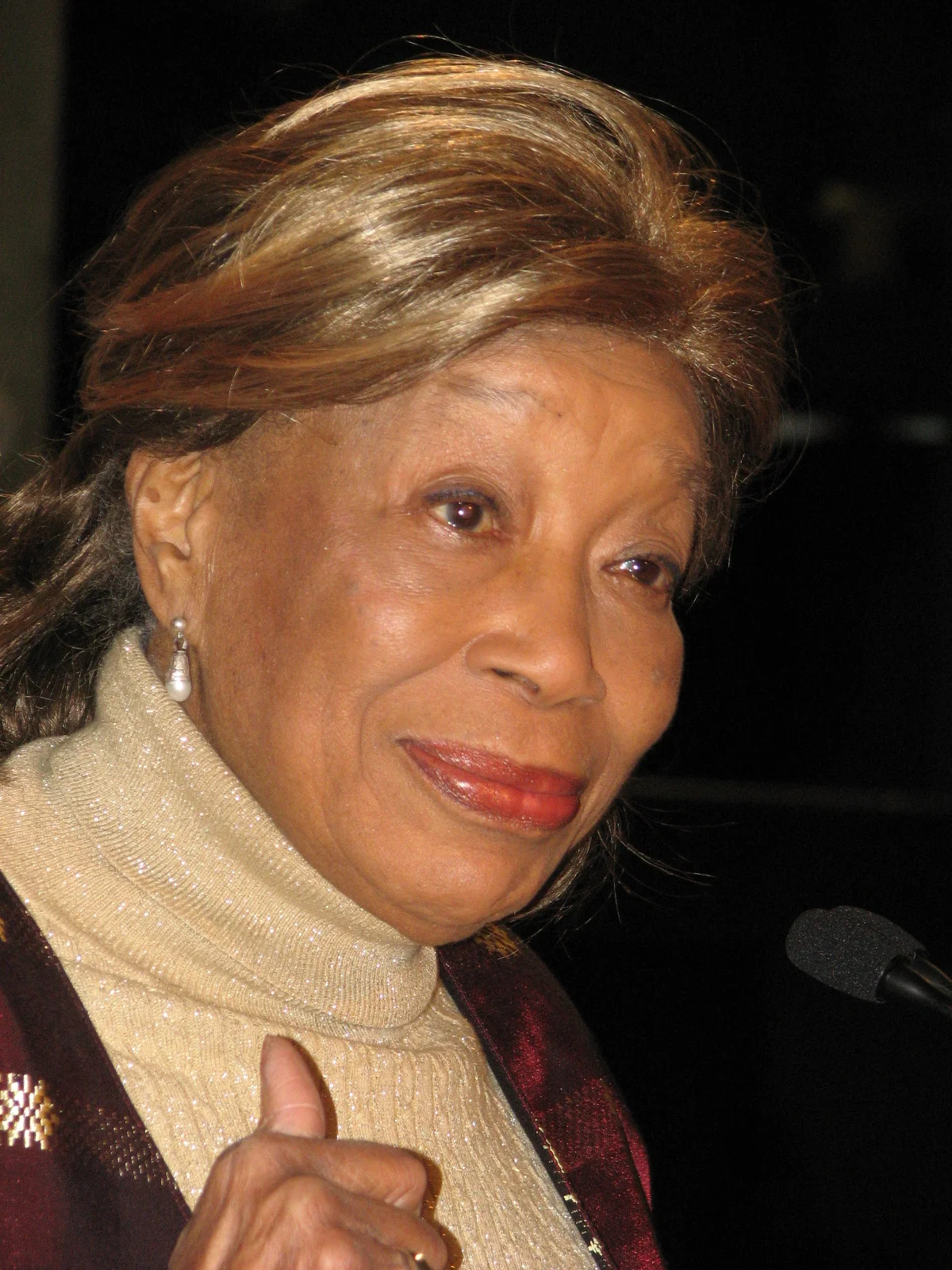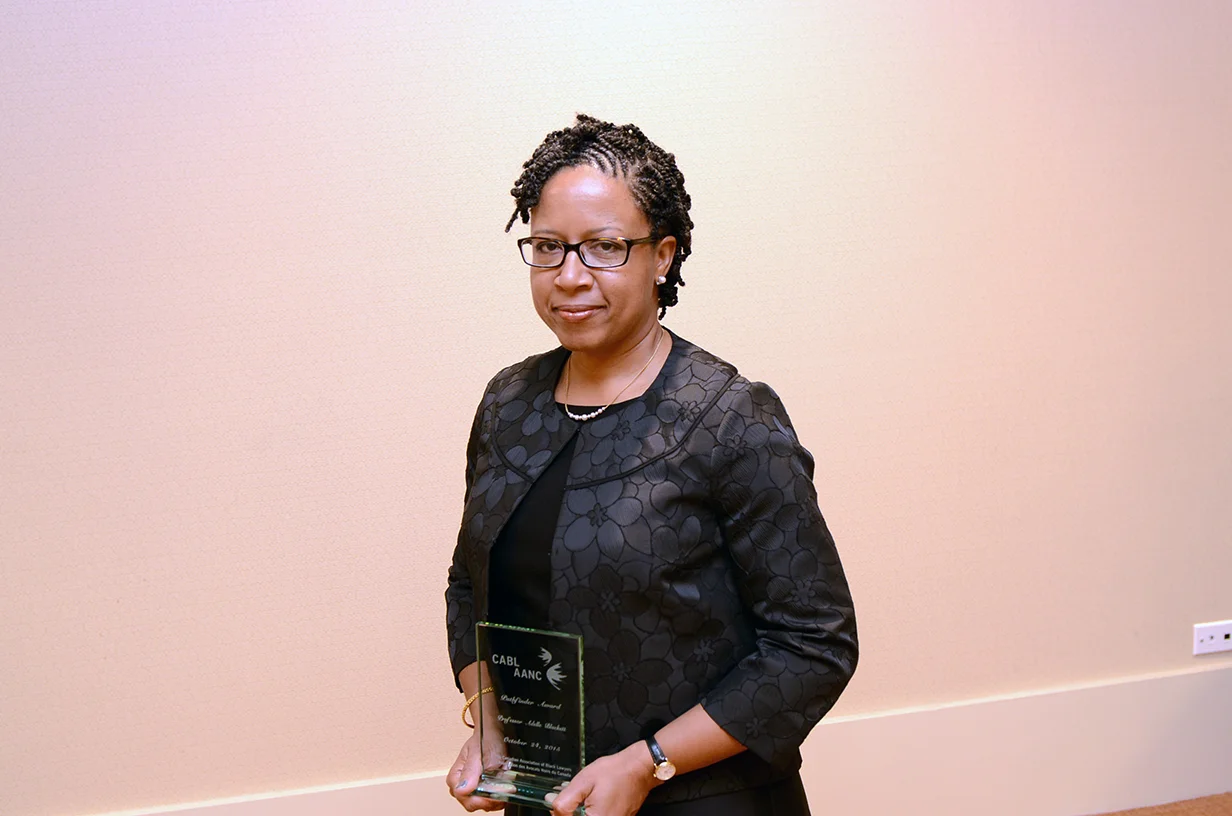Mairuth Sarsfield wrote eloquently about Black multiculturalism
A mighty tree has fallen.
The obituary headliner encapsulates the driving force that was Mairuth Sarsfield’s passionate and impressive life.
The Montreal-born writer, diplomat, published author, television host and community activist passed away last month at Mount Sinai hospital after complications from a stroke. She was 88.
She moved from Vancouver to Toronto earlier this year and was in a senior’s home before being hospitalised.
Completing post-secondary education in Canada, New York and Ghana, Sarsfield was a research writer for CBC’s TV The New Generation for four years up until 1966 and The People Tree exhibit co-ordinator at Expo ‘67 in Montreal. She developed a theme for Canada’s pavilion at Expo ’70 in Osaka, Japan and co-hosted Hourglass aired on CBC TV before joining the Department of External Affairs in Ottawa in 1971 as an information officer.
Sarsfield served as a senior information officer with the United Nations Environment Program in Nairobi, Washington and New York before returning to Canada in 1984 to become Director of Development Communicators Inc. and co-host of the Senior’s Report and Literati on PBS TV.
“Mairuth will be remembered in many different ways,” said historian and curator Dr. Sheldon Taylor. “She did so much for so many while maintaining a busy professional and community life.”
Sarsfield produced the ‘Many Rivers to Cross: The African-Canadian Experience’ exhibit curated by Taylor and showcased in 1992 at the Canadian Museum of Civilization.
“Not only did she fly in flowers from Jamaica for the opening ceremony, but she had an ice sculpture done and she convinced the museum staff to have both escalators leading to the Grand Hall running in the same direction so that the choir from Montreal selected for the event could make their grand entry singing Queen of the Highway,” Taylor said. “That swept Brian Mulroney (he was the Prime Minister at the time) off his feet and it brought to the forefront the richness of who Mairuth was.”
Taylor recalled another occasion that he said exemplified Sarsfield’s passion for her community.
“After the ‘Many Rivers to Cross’ exhibit, she asked me to work with the museum because there was an exhibition – Hidden Treasures from Tervuren – that was coming from the Royal Museum for Central Africa in Belgium,” he recounted. “I did it and during that process, they were revamping the Grand Hall. The face-lift comprised a kaleidoscope of Canadian people, but the one group they forgot to include was us. That drove Mairuth nuts. They had gotten Pierre Berton to do a script of Canadian people and one of the things he neglected to do was acknowledge the contributions of Blacks. Mairuth went to the Ottawa Citizen newspaper and had a full page article done criticizing the glaring omission. This is the kind of person she was. They don’t make them like Mairuth anymore. She was a great woman.”
While accompanying her second husband – British-born chartered accountant Dominick Sarsfield -- to Papua New Guinea where he was on assignment, she started her first novel, I Could Have Murdered Margaret Mead.
Her second novel, No Crystal Stair, was set in Montreal during World War 11 and tells the story of the harsh life Blacks in Little Burgundy faced. The book was included in the CBC Canada Reads series.
Sarsfield, a former Carleton University governor, was working on Who is Sylvia? when she became ill. The book would have shed light on the early African-American Salt Spring island settlers who British Guiana (now Guyana)-born Vancouver Island and British Columbia’s first governor James Douglas invited to migrate to Canada in 1858 to protect his colony from the Americans territorial imperative drive to own the Pacific Coast.
That was a period when the United States had divested California from the Republic of Mexico, legally swindled British Columbia out of the Columbia River delta and began to negotiate with Russia for Alaska.
“Mairuth was a significant motivator of and significant participant in the discovery of African/Black Canadian literature and writers, a process that really began to take off in the mid-1990s and which led to the establishment of new voices and figures such as Lawrence Hill and Esi Edugyan to accompany already established writers like Austin Clarke and Claire Harris,” noted City of Toronto poet laureate and E.J Pratt Professor of Canadian Literature Dr. George Elliott Clarke.
“She will be remembered for No Crystal Stair which tells the story of love and race in jazz-age Montreal when African Americans, Americans and Europeans flocked to the city to escape racism and/or war, prohibition of alcohol and the Great Depression. She recalled and wrote eloquently about the Black multiculturalism already in play in Montreal involving Garveyites, Baptists, Scotians, Jamaicans, Harlemites and Haitians long before the word ever got coined. She also wrote dexterously about the French-Canadian struggle for equality and Quebecois racism. Her contribution to our joint culture was immense. She is irreplaceable and singular and she will be long-mourned and long-missed.”
The first Black woman to serve on CBC’s Board of Governors, Sarsfield is predeceased by her mother – renowned teacher and community activist Anne Packwood – and children Jeremy Hodge and filmmaker Jennifer Hodge de Silva who died in 1979 and 1989 respectively.
Every year on October 22, citizens in Cleveland, Ohio celebrate Mairuth Sarsfield Day for her significant work with the United Nations when she developed a global environmental campaign, For Every Child a Tree.






